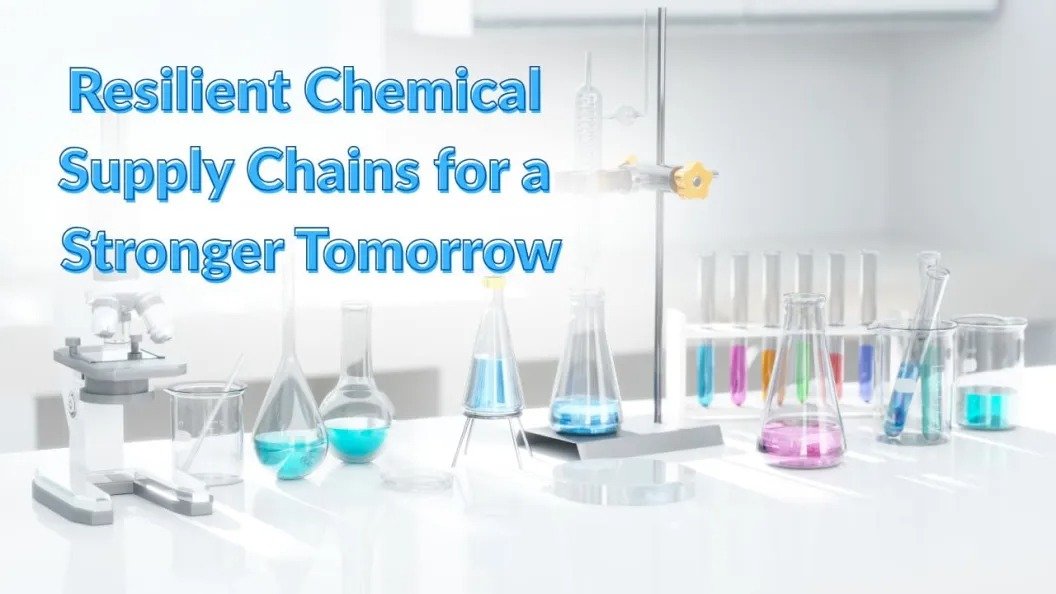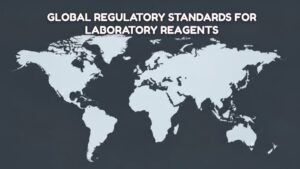The chemical industry plays a vital role in supporting global economies, supplying raw materials for industries like pharmaceuticals, agriculture, energy, construction, and consumer goods. However, in today’s uncertain global climate marked by economic volatility, geopolitical tensions, pandemics, trade disputes, and environmental challenges, chemical supply chains face unprecedented disruption.
To stay competitive, chemical companies must not only manage risks but also build resilient, flexible, and sustainable supply chains that can adapt to constant changes. This article explores how businesses, particularly chemical manufacturers and exporters in India, can strengthen supply chains to ensure continuity, reliability, and long-term growth.
Why Supply Chain Resilience Matters in Chemicals?
Chemical supply chains are highly complex, often spanning multiple continents with dependencies on raw materials, specialized logistics, and regulatory frameworks. A single disruption, whether it’s port congestion, raw material shortages, or political instability, can halt production and impact customers globally.
Resilience in this sector means:
- Continuity of operations even during disruptions.
- Agility to adapt to demand fluctuations and raw material shortages.
- Sustainability and compliance with global environmental standards.
- Stronger customer trust through consistent delivery and quality.
Global Challenges Impacting Chemical Supply Chains
Several macro-level challenges are shaping how chemical companies manage their supply networks:
- Geopolitical tensions and trade tariffs – Shifts in global alliances and trade restrictions impact raw material imports and exports.
- Pandemic aftershocks – COVID-19 highlighted vulnerabilities in global supply chains, from transport bottlenecks to labor shortages.
- Climate change and natural disasters – Floods, hurricanes, and heatwaves can disrupt production hubs and logistics routes.
- Raw material volatility – Fluctuating prices of crude oil, lithium, and other inputs increase unpredictability in production costs.
- Regulatory pressures – Stricter compliance with emissions, waste management, and product safety requires agility in adapting to evolving laws.
Key Strategies for Building a Resilient Chemical Supply Chain
a) Diversification of Suppliers and Raw Material Sources
Relying on a single country or supplier for raw materials is risky. Chemical companies are now diversifying sourcing across multiple geographies to reduce dependency and mitigate risks.
b) Digital Transformation and Smart Supply Chains
Adopting AI, blockchain, and predictive analytics helps companies track shipments, forecast demand, and identify risks before they escalate. Smart technologies improve visibility and allow proactive decision-making.
c) Sustainability Integration
Global buyers increasingly demand eco-friendly and sustainable sourcing. Incorporating renewable feedstocks, energy-efficient production, and green logistics strengthens supply chain resilience and brand reputation.
d) Localization of Supply Chains
Nearshoring” or localizing production closer to demand centers reduces transportation risks, lowers costs, and ensures faster response to customer needs.
e) Robust Risk Management Systems
Conducting regular stress tests and scenario planning helps chemical companies prepare for sudden disruptions. Risk mapping ensures business continuity during crises.
f) Collaboration and Strategic Partnerships
Collaborating with logistics providers, technology firms, and industry associations creates stronger networks that can weather disruptions together.
The Role of India in Global Chemical Supply Chains
India is emerging as a global hub for specialty chemicals and reagents, thanks to its competitive manufacturing capabilities, skilled workforce, and favorable government policies. Many global players are diversifying from China and investing in Indian suppliers.
Opportunities for India include:
- Expanding its role as a chemical exporter to the US, Europe, and the Asia-Pacific.
- Attracting investments for specialty and agrochemicals.
- Leveraging government initiatives like Make in India and PLI schemes to boost production.
- Positioning Indian companies as trusted, sustainable suppliers in global supply chains.
Case Example – GSP Chem’s Approach to Supply Chain Resilience
Companies like GSP Chem, a leading chemical manufacturer and exporter in India, showcase how resilience can be built:
- Strong global partnerships ensure uninterrupted raw material access.
- Diversified product portfolio ranging from pH indicators to diagnostic reagents reduces dependency on a single market.
- Sustainability-first approach helps meet international compliance and customer expectations.
- Investment in digital tools strengthens monitoring, reporting, and customer communication.
- Focus on quality and trust ensures long-term relationships with international clients.
This proactive strategy not only safeguards against risks but also positions GSP Chem as a reliable partner for global industries.
Future Trends Shaping Chemical Supply Chains
- Circular economy adoption – Recycling and reusing materials will reduce dependency on virgin raw materials.
- Green Logistics – Hydrogen-powered trucks and electric fleets will reshape chemical transport.
- AI-driven predictive analytics – Smarter demand forecasting and real-time optimization of routes.
- Blockchain for transparency – Secure and verifiable supply chain data for customers and regulators.
- Greater localization – Regional hubs closer to consumption markets.
Conclusion
In an uncertain global climate, building a resilient chemical supply chain is no longer optional; it is a business imperative. Companies must focus on diversification, sustainability, digital transformation, and partnerships to thrive amid challenges.
India’s growing role as a chemical powerhouse, supported by strong players like GSP Chem, underscores the importance of resilience and innovation working in tandem. By prioritizing quality, sustainability, and global connectivity, Indian chemical manufacturers are not just weathering disruptions; they are shaping the future of global supply chains.








